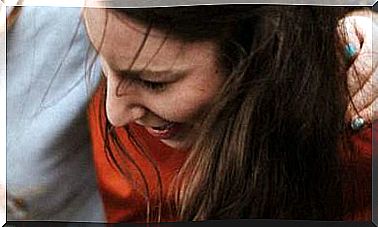The Key To Reaching A Goal: Look At Who Already Achieved It
There is nothing like knowing that someone did it before us. Who overcame a disease, a sad situation, a challenge, a goal … Like them, we too can achieve our goals.

Goals, objectives and challenges. We often fail to achieve them simply because we are unable to do so. However, if we look at people who managed to achieve these goals before us, we can convince ourselves that, in fact, we do have the capacity to achieve ours.
Our thinking conditions our reality. Leadership specialist Robin S. Sharma, author of The Monk Who Sold His Ferrari (Grijalbo), affirms that what we believe about ourselves becomes a prophecy that is fulfilled “because what you believe in is what determines your actions , and you never act contrary to how you think ”. The protagonist of his book expresses it in the following way: “If you take care of your mind, if you nurture it and cultivate it as if it were a fertile garden, it will flourish beyond your expectations. But if you let the weeds take root, you will never be able to achieve peace of mind and inner harmony ”.
Referents that help us achieve the “unattainable”
An example that has been and still is a reference for most personal trainers around the world is Roger Bannister; In his day, a scrawny Oxford medical student who, in 1952, played the sad figure in the Olympic games, only achieving a fourth place in the Olympic track and field final.
Everything changed in May 1954; Bannister became the first person to break the four-minute barrier in the 1,500 meter dash. Some called the feat a miracle because, until that moment, the four-minute limit was considered insurmountable, and not only by the athletes themselves, but also by coaches and physiologists. The specialized magazine Sports Illustrated called it the most important individual athletic achievement of the 20th century and chose Bannister as “the athlete of the year”.
Less well known is what happened after the success of Bannister. Just 46 days later, another runner, Australian John Landy, broke Bannister’s record. And from there, in subsequent seasons, more runners managed to break a mark that, until Bannister did, was considered totally unattainable. Impossible.
In a matter of three years, seventeen runners had equaled the greatest athletic achievement of the 20th century.
The funny thing, according to journalist Dan Coyle in his book The Keys to Talent (Zenith), is that nothing had changed. The surface of the tracks was exactly the same; the training mode was the same as before; and, so to speak, the genes were also the same.
“Attributing this fact to self-confidence or positive thinking is not understanding the issue,” says Coyle bluntly. The change, consequently, did not come from within the athletes, but all of them responded to an external factor. “The seventeen runners received a very clear signal: you can do it.”
What others have achieved becomes a pillar on which to sustain ourselves mentally. And that builds self-confidence, no matter how much Coyle says. Leadership specialist Robin S. Sharma claims that Bannister showed the world that the impossible was possible. “The people,” says Sharma, “had a new point of reference and, armed with that knowledge, did the impossible.” Sharma gives us his recipe for us to meet our goals and recommends asking ourselves: “What is your four-minute mile? What notions have you considered impossible? What false assumptions have you made about what you cannot have, cannot be, or cannot do?
Phrases to achieve inspiration and achieve your goals
The Greek poet Hesiod put it this way: “If you add a little to a little, and do so frequently, it will soon become a lot.” Other authors have subsequently written about the power of the will:
- “Most people mistake the limits of their life for the limits of the world. A few do not. Join them ”. Arthur Schopenhauer
- “The limitations that we perceive in ourselves become the chains that bind us and prevent us from reaching the fullness to which we are destined.” Robin sharma
- “There is no such thing as a normal human being. If you have a normal brain, you are superior ”. Ben carson
- “Many people live in a very restricted circle of their possibilities. We all have life reserves that we don’t even dream of ”. William James









